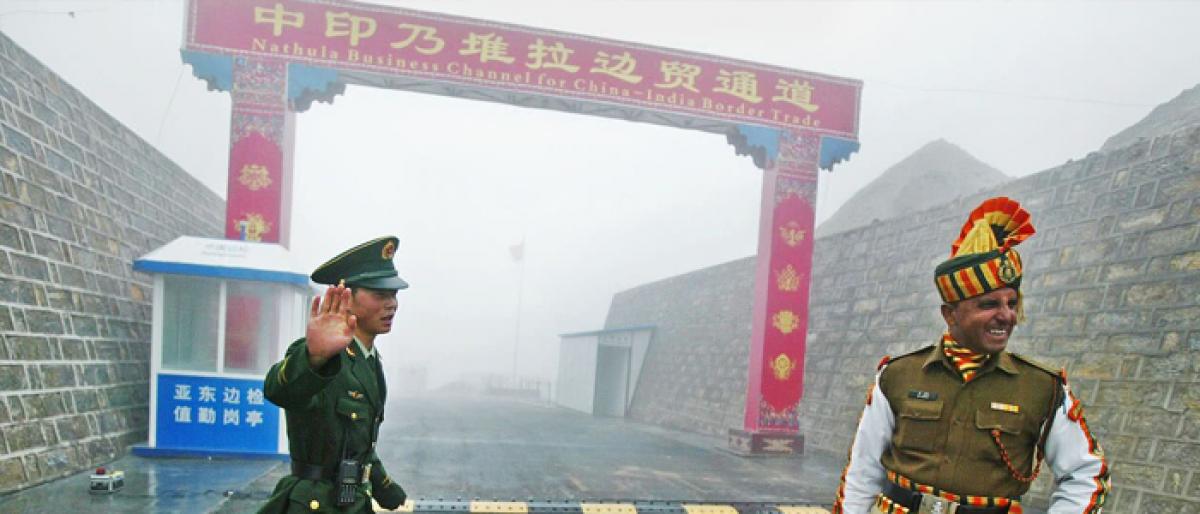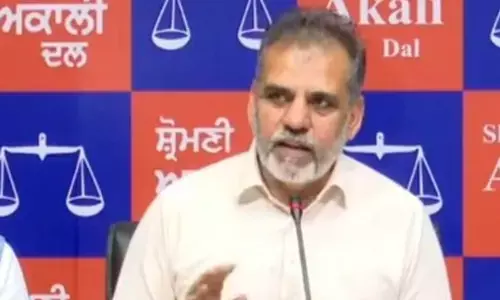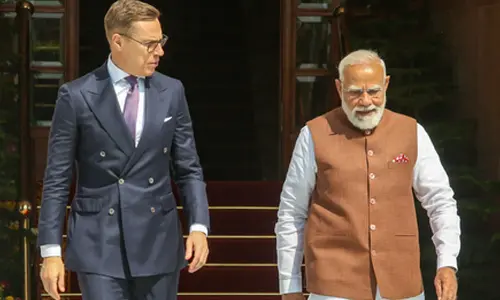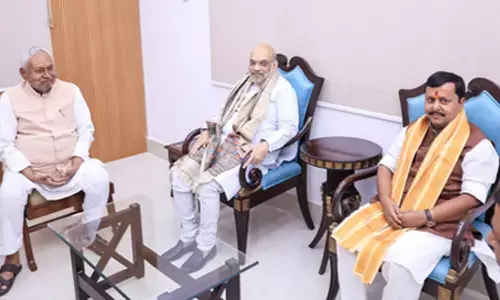China’s liability should be India’s opportunity

India has reportedly decided not to join the USled counter to Chinas Belt and Road Initiative BRI The US initiative, which is a trilateral one involving Japan and Australia, was launched at the first IndoPacific Business Forum meeting on July 30 and seeks to fund infrastructure projects in the region for which about 113 million has been earmarked India has opted to stay out of this initiat
India has reportedly decided not to join the US–led counter to China’s Belt and Road Initiative (BRI). The US initiative, which is a trilateral one involving Japan and Australia, was launched at the first Indo-Pacific Business Forum meeting on July 30 and seeks to fund infrastructure projects in the region for which about $113 million has been earmarked. India has opted to stay out of this initiative and thus maintain a fine balance between the US and China. Here, it is pertinent to recall that India has also stayed out of the Chinese BRI initiative.
Such an attempt to maintain a balance between China and the United States needs to be jettisoned since it is a confusing strategy that involves sitting on the fence and, at times, even appeasing the Chinese. Arguably, India could take advantage of the vulnerabilities in the Chinese system and gain an upper hand in the asymmetric power equation that has developed vis-a-vis China.
Any mention of China’s vulnerability, whose economy is $11 trillion-strong, is sure to raise eyebrows… Internally, one-party rule might appear resilient and the People’s Liberation Army (PLA) most powerful. But it is quite baffling to see the Chinese Premier visiting Tibet between 25 and 27 July and declaring it an inseparable part of China’s “sacred” territory as well as urging religious figures to promote national unity and ethnic harmony.
Why has this statement been made now when Beijing has issued more than a dozen white papers on Tibet since the 1990s to bolster its claims, and has rapidly intensified the militarization of Tibet since the 2000s? Further, the fate of Muslims in Xinjiang is dire as China has detained a million ethnic Uighurs and sent some two million Uighurs and other ethnic Muslims to secret camps for indoctrination to Chinese nationalism.
Clearly, all is not well inside China. It is spending an enormous amount of money on the People’s Armed Police (PAP), deployed to curb internal rebellion and dissent. China’s expenditure on internal security is reportedly $196 billion, larger than the PLA’s official budget. This suggests internal destabilisation is a greater worry for the Communist Party than external threats…
These rising internal vulnerabilities and external pressures have caused China to woo India, with the first such instance in the post-Doklam phase being the statement made by Foreign Minister Wang Yi on the side lines of the parliamentary session in March 2018, when he was quoted saying, “if China and India are united, one plus one will become eleven instead of two.” The subsequent Wuhan informal summit in April between Prime Minister Modi and President Xi should also be seen in this context.
Simply put, vulnerability not only explains China’s courting of India at this juncture...China’s current vulnerability emanates from Trump’s Indo-Pacific strategy, which challenges Xi’s dream project, the BRI, with an estimated cost of $8 trillion. And to deal with this vulnerability, China is wooing India. At this juncture, India is a lesser contradiction, notwithstanding the 2017 Doklam crisis and New Delhi’s refusal to endorse the BRI. There is no real bonhomie between India and China, and there can never be, because according to Confucian thought, there cannot be two tigers residing on a single mountain.
In dealing with China, India should thus be aware of the former’s deep insecurities and vulnerabilities. It should shape its China policy from such ‘knowing’ and not from a superficial analysis of the immediate global circumstances. India should reconsider joining the US-led counter to the BRI, albeit after scrupulous negotiations that both uphold its foreign policy interests and shield it from the dragon’s wrath.
(Abanti Bhattacharya - Views expressed are of the author and do not necessarily reflect the views of the IDSA or of the Government of India; Courtesy: https://idsa.in)










